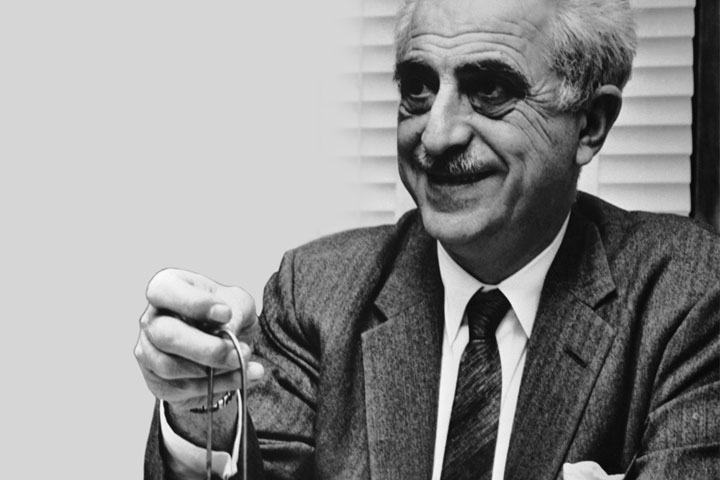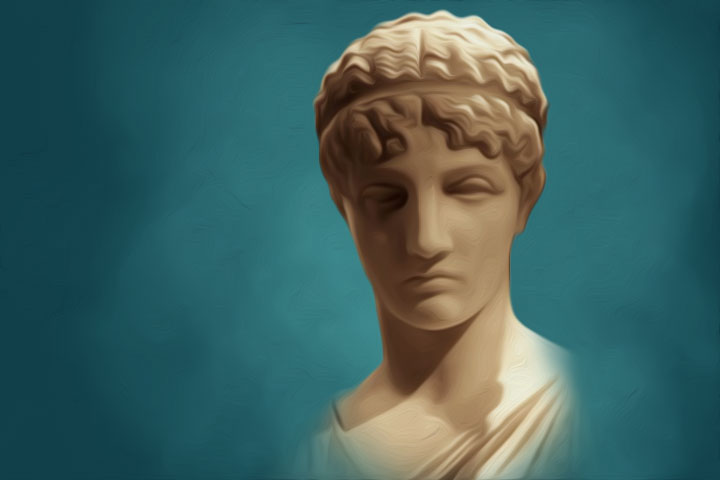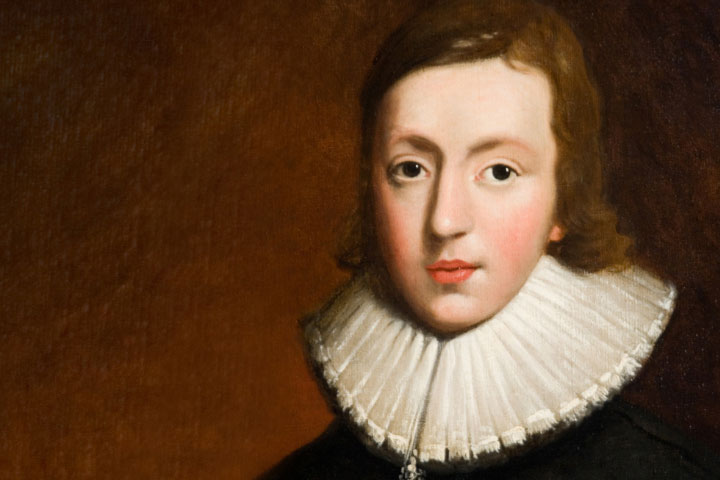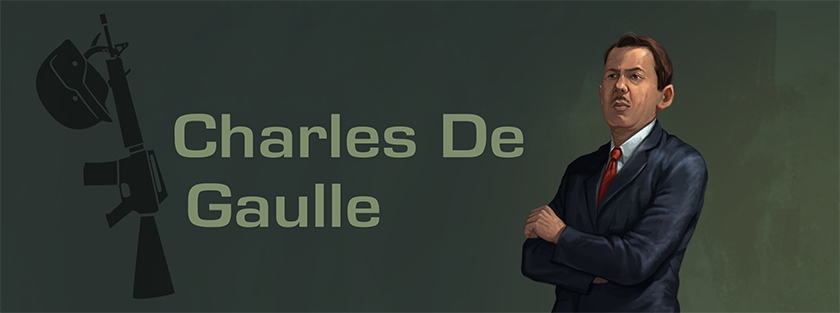

Life is an untrodden path that unfalteringly throws innumerable challenges. The determination to fight obstacles, the inspirational force constantly striving to keep your ambition alive, the modesty to accept defeat, the emotional quotient that grounds you and the solemnity towards promises are those key elements in life that shape up your individuality. The journey of every human is an amalgamation of highs and lows but man attains the epitomizing stature when the highs bring forth the noble intentions and aspirations, and the lows bring forth the true strength to overcome failures and vigorously strive hard to realize the promises. The man who fights every test of time, emerges victorious with a dignified composure, making the world of a difference to his fellow beings and is bestowed the stature of a legend.
A legend is more than an inspirational story - a captivating voyage of life that brings along small integral details to be imbibed in our everyday life; a boost of motivation to do our wee bit for the betterment of the world. Let us traverse through the extraordinary journey of one such legend… a French soldier, writer, statesman, a former President and architect of France’s Fifth Republic. A man, who started off as an ordinary soldier in the French army and moved on to become the President. The man who has been instrumental in liberating France and giving the Fifth Republic constitution, the name that continues to garner reverence – Charles de Gaulle.
Charles de Gaulle was a towering personality with an envious height of 6 feet 5 inches. His high forehead, droopy eyes and large nose were features that arrested attention. ‘General de Gaulle’, ‘the Great Asparagus’ and ‘Cyrano de Bergerac’ were nicknames that became synonymous with Gaulle’s personality. De Gaulle donned quite a few hats and personified each role with utmost finesse. He was a wartime hero, a voracious reader, a strategist, a politician and a revolutionary. His political philosophy synonymously called ‘Gaullism’ continues to dictate a powerful influence in France; inspiring to continuously strive to be independent enough, to fight any influential foreign power vying to capture the country’s reins.
An interesting quote by Gaulle states - “Faced with crisis, the man of character falls back on himself. He imposes his own stamp of action, takes responsibility for it, makes it his own.” The quote gives a glimpse of the man he was. A man who had the guts to take ownership of his mistakes when the world around believed in passing on the blame. A thrilling idea to explore the life of a man of so many facets! De Gaulle- the man with a vision, mission and ambition to lead France to progression. An existential hero whose leadership, courage, elegance and wit is spoken about till date.

Charles André Joseph Marie de Gaulle, the iconic Frenchman was born in an affluent Roman Catholic family. The bundle of joy for Henri de Gaulle and Jeanne Maillot graced their lives on 22nd November, 1890, in the bustling industrial region of Lille in French Flanders. The origin of the exact details of the de Gaulle clan seems obscure but it is believed they were aristocrats from Normandy and Burgundy. However, his maternal ancestry details showcase enough proof of a business class lineage. Therefore, it can be rightly asserted than an aristocratic legacy from the father’s side and entrepreneurial dexterity from the mother’s family were bestowed on Charles de Gaulle and his siblings - Xavier, Marie-Agnes, Jacques and Pierre by virtue genetics.
Charles de Gaulle’s father, Henri de Gaulle, was a professor of Philosophy and Literature in a Jesuit school who later went on to open his own private school in Paris. His mother Jeanne was a pious and religious lady who ensured a happy encouraging childhood for the de Gaulle brood. The intellectual pursuits by the father, clubbed with religious and patriotic sentiments instilled by the mother formed the core formative years of the De Gaulle siblings.
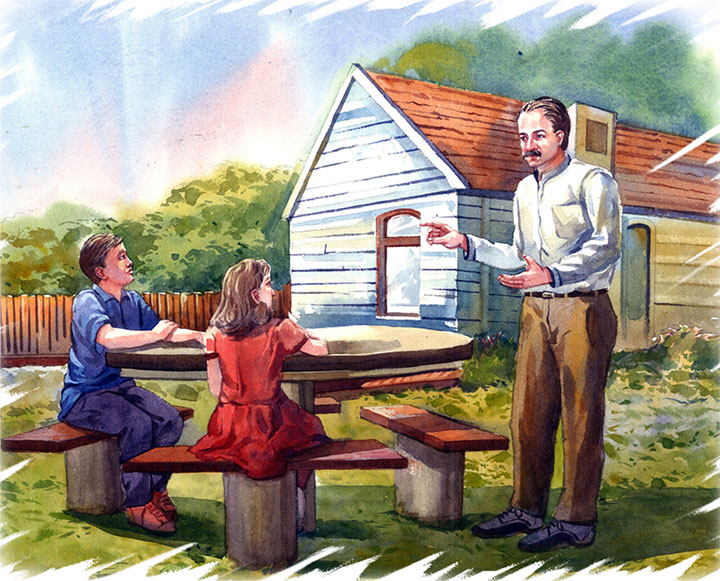
To bring in an innovative element to his children’s upbringing, Henri de Gaulle initiated simple interactive sessions with his children that became instrumental forces in familiarizing them with the French history and culture at an early age. The tales on the French submission to Germans in 1871 and the ordeal shared by Jeanne Maillot fostered a sense of patriotism among the children, especially the young Charles de Gaulle. An instant love for the military and an inert prudence to liberate France gained momentum for Charles de Gaulle with every debate session. The French surrender stories retold by his parents instigated a burning desire to join the military services, devise better military strategies and contribute to creating a sovereign French nation.
Childhood is considered the most influential years where people, situations and passions easily create an instant attraction. A virtue like reading opens you to a world of knowledge and instils a sense of culture. Henri de Gaulle - a passionate booklover, had a huge collection of books on varied subjects. The collection fascinated Charles to imbibe the reading virtue that culminated to an instantaneous attraction for books at a very tender age. The love for books transformed him to an ardent reader; inspired him to dabble with writing when he was merely in his teens; a trait that would eventually go on to add a new facet to his persona – a writer who authored books on military strategies and wartime stories.
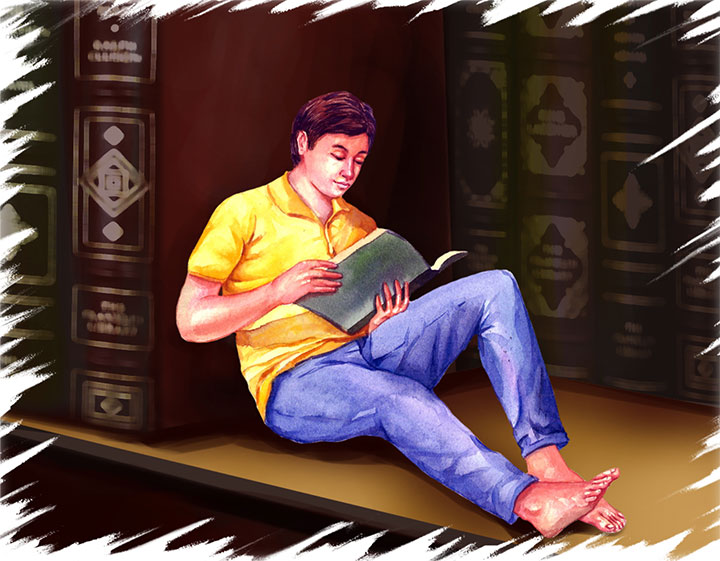
From his birth in 1890 to 1912, Charles had a wonderful childhood with unconditional support and encouragement from his parents at every stage - a healthy upbringing that instilled tradition and patriotism in synchronization with a progressive vision.
The year 1912 marked a new beginning for Charles as he graduated from an elite military academy, Saint-Cyr and went on to join the French infantry unit to pursue his long cherished dream of being a part of the military troupe in liberating France.

The exemplary vocational journey of Charles began with a military posting as an ordinary soldier due to a new change in the recruitment policy that made every new recruit spend a year as an ordinary soldier. As a result, Charles worked as a soldier, then moved on to become a corporal and then a sergeant. During this training period he was exposed to a difficult life with abundant regulations to be followed - all in the name of military discipline. Charles disliked this format as he felt that the procedures merely dampened the sprits and the potentials of the new recruits. However, in spite of all adverse situations Charles managed to do exemplarily well at the academy and gathered accolades for his manners, astuteness, bravery and presence of mind. He fought his supervisors over the lack of preparation and training in war-time situations and the inadequacy of equipment to put up a strong front while battling it out with stronger contemporaries.
Barely 4 years into the military, and Charles was summoned to lead the worst adversities of World War I that shook the entire globe to destruction in 1916. The prevalent captain Charles de Gaulle led the French army, putting up a strong front against the strong German force. Unfortunately, Captain de Gaulle was brutally injured in the dreadful Battle of Verdun on a remorseful day of March 1916 and was assumed to be dead on the war field. But like they say, life never leaves you unless death embraces you; de Gaulle lived on to tell his tale. The German army found the wounded de Gaulle and made him a captive. The fiery fighter spirit in de Gaulle’s genes detested the thought of being held a prisoner and he made as many as five attempts to escape from captivity. Sadly, his efforts always went futile and he was punished with solitary confinement in a concentration camp. Freedom from captivity came for de Gaulle when World War I ended. In the year 1919 de Gaulle joined the French military segment stationed in Poland as an infantry instructor for the Polish army and contributed significantly during the Polish-Soviet war. He was promoted to the designation of a Major and was asked to chisel his career in Poland. However, he preferred to return back as his heart was in France.
Once he came to back to his homeland, his bottled emotions and experiences looked for a release. The strength of the pen was always revered by Charles de Gaulle and his experiences during the Polish war and the World War I were strategically quite varied. He immediately went on to pen his experiences into a number of books and articles on futuristic thinking to reorganize the army with advanced equipment and methodologies. Some of the critically acclaimed books de Gaulle penned were “La Discorde chez l'ennemi” in 1924, “Vers l'Armée de Métier” in 1932 and “La France et son armée” in 1938. The book Vers l'Armée de Métier (published in English as "The Army of the Future") attained the hall of fame; a book that spoke about innovative ideas on developing mechanised troops and specialised armour division instead of blindly following the static theories epitomized by the Maginot Line (a term used specifically to describe the French-Italian defence mechanism). However, in spite of compiling his progressive views that achieved world-wide acclaim, his theories were dismissed outright by the French political and military establishment, barring a few exceptions. His comrades were quite hostile all through the 1920’s and 1930’s owing to his bold views. In spite of being subjected to a judgemental behaviour, he stood true to his name de Gaulle- a namesake speculated to have origins from the Germanic form ‘de walle’ (it is presumed that many of the French had ancestral roots in the Frankish and Norman regions that led to a high degree of German influence) which means “the wall”; a wall – that does not budge, is influential, stands strongly to every test of time.
The onset of World War II in September 1939 brought about a shuffle in the French military regiment. Charles de Gaulle was promoted to the post of a Colonel who reviewed the troops that progressed towards the war front.
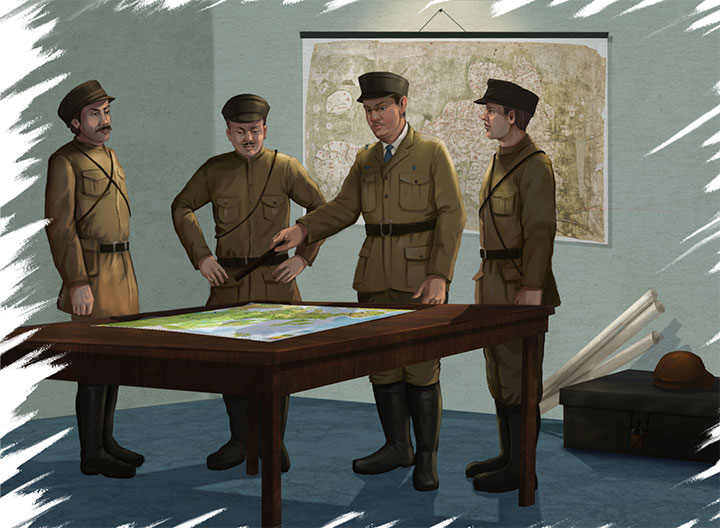
Around the same time a war broke out between France and Germany and de Gaulle was temporarily assigned as the Brigadier General of the Fourth Armoured Division in May 1940. This period was specifically great for de Gaulle, with his professional life soaring to greater heights as he was appointed the undersecretary for defence and war under French leader Paul Reynaud. But this glory was short-lived as the reins of France got transferred over to a new leader named Pétain. Pétain devised a collaborative deal with the Nazis to restrict the ongoing bloodshed between France and Germany. Charles de Gaulle, being a true nationalist could not swallow the submission to the Germans in 1940. He decided to rebel, fled to England and initiated the Free French Movement with the earnest support of the prevalent prime minister of Britain - Winston Churchill.
Charles de Gaulle’s rebellious approach was definitely not taken lying down by the French ruling bandwagon. A court-martial judgement, with 4 years rigorous imprisonment was pronounced for de Gaulle on 4th July, 1940, in Toulouse. His absence during the first trial resulted in a second court-martial on 2nd August, 1940, that pronounced a death sentence for disloyalty, ripped him of his military rank and confiscation of his property. During this same period, de Gaulle lost his mother but on account of the sentences levied on him, he could not be informed and as a result, he was unable to attend his mother’s funeral. In spite of the turmoil, de Gaulle persisted through all the tiring times, emerged strong to stay composed and focused towards his mission – The Free French Movement.

“France has lost a battle but has not lost the war.”
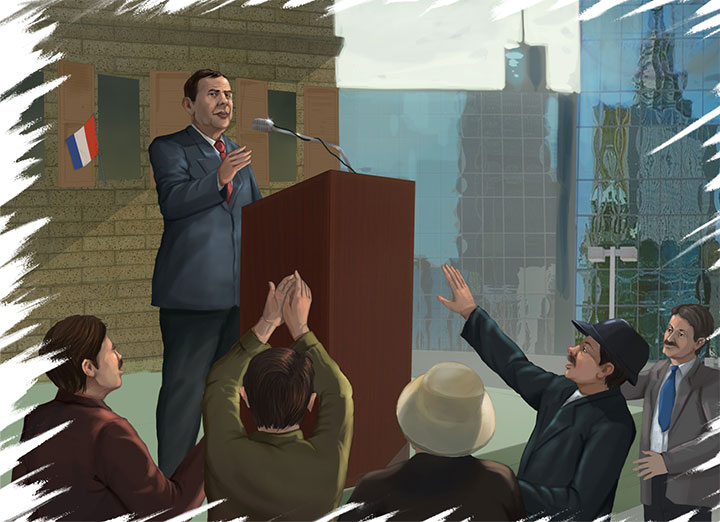
The punch line of the famous appeal of 18th June, 1940, that was broadcasted on BBC radio from London became the first triggering step to kick-start the mission. The speech initially faced the wrath of the British Cabinet protesting to block its telecast but Churchill overruled the objection. Eventually, the speech was aired on BBC for several days in a row to reach out to the people of France. Although only a small segment of the French public actually heard the speech, the excerpts of the speech were published in the local newspapers. A new wave of revolution dawned on the French nation as news of a French General in London, striving hard to go against the tide of submission, striking hard to win back the country’s lost glory and honour, spread. A unanimous support for the new leader, Charles de Gaulle, began to radiate through the French nation and the Free French Movement gained momentum.
The gift of life is the greatest gift and if you wish to live life to the fullest then there is no age bar to start afresh. Charles de Gaulle began his political career at the prime age of 50 with merely a handful of supporters but had a strong obstinate determination to fight for France and its interests. He was leading an exiled life and his political credibility was less known to both France and Britain. From 1940 to 1945, Charles de Gaulle lived in Britain and worked hard to create awareness on the Free French Movement. He had complete faith in his mission. His intentions were noble and so was his confidence in himself and his rock-solid leadership abilities.
It takes great guts to leave your family, career and everything to pursue a dream of loving your nation, and Charles de Gaulle is the most appropriate example of the man who went out of his way to fight for his nation. Charles de Gaulle left no stone unturned to create a strong party with his Free French Force. He used the broadcast channel to reach out to his fellow countrymen in putting up a strong resistance against the German empowerment in France. He independently arranged soldiers to fight the battles, garnering help from the allied forces. In his endeavours, he sometimes struggled with opposition not only from the French political gamut but also from some of the allied leaders. However, de Gaulle was not a man to be deterred by struggles and he strived endlessly to succeed in his mission. In spite of being left out in the Yalta Conference (the meeting held after World War II to discuss reorganization of war-torn European nations) he still managed to secure France with an occupation zone in Germany and a seat in the United Nations Security Council.
The Operation Overlord or Battle of Normandy, in 1944, acquired the distinction of the most crucial battle between the western Allied countries and the German Forces in Europe during World War II. However, the battle brought about a breather for France. De Gaulle made complete use of this opportunity to establish the authority of the Free French Force instead of allowing an Allied Military Government for the occupied French territories. This event marked the return of the hero to his homeland in Paris, and de Gaulle immediately took up the reins at the War Ministry office to continue the functions of the Third Republic. The powerful influence of the Free French Force was successful in generating an external pressure that marked the downfall of the Vichy regime. Around the same time, the end of World War II was pronounced and de Gaulle was designated as the President of the provisional government from September 1944. He gave up the position on 20th January, 1946, owing to an ongoing conflict among the parties and his disagreement over the draft designed for the constitution of the Fourth Republic.
From the year 1946 to 1953, Charles de Gaulle chalked out a new political movement called the Rassemblement du Peuple Français (Rally of the French People) to transform the French political scenario. However, this new venture did not attain the desired impetus and De Gaulle decided to take a break from active politics in 1953. He made Colombey-les-Deux-Églises his new home and went on to pursue his other passion – writing memoirs on war. In 1954, de Gaulle went on to publish the first volume of his book called “Memoirs” – a book that reinstated de Gaulle’s aspirations to create a French nation of grandeur while reinstating its position as a world leader. Though passion for writing continued to keep him occupied during this phase, yet, the political state of affairs never ceased to grab his interest. Even during this retired phase, he continued to be in touch with his political counterparts and was involved in the political developments in French Algeria. Though he tried to move away from politics, but politics was not ready to let him move on. Destiny had already designed his return to active politics as his most notable contribution to France was yet to come. The French political scenario called out to its hero and 1958 marked the return of Charles de Gaulle to take over the unstable reins of France.
The opportunity to do something worthwhile for France was too much of an attraction for Charles de Gaulle to resist and he quickly decided to take up the challenge. However, this ambitious, aggressive and head strong leader had a flip side that was equally endearing. A devoted husband and a doting father - family matters above everything.

Family and the essence of family are embossed from the family values imbibed during childhood. Charles de Gaulle was brought up in a traditional, conventional Roman Catholic family and he successfully carried forward the inherited legacy of valuing the family with utmost integrity. Charles entered a new phase of life when he and Yvonne de Gaulle embraced the sacrament of holy matrimony on 7th April, 1921. Yvonne de Gaulle was truly in every sense his better half. She was fiercely loyal to her husband and was de Gaulle’s strong support system in all his perilous pursuits.
The couple had 3 children, namely Philippe de Gaulle, Elisabeth de Gaulle and Anne de Gaulle. The youngest sibling – Anne, had Down’s syndrome and due to birth injuries she could never walk on her own. It was a common practice to institutionalize such children but de Gaulle refused to part with her. Anne was treated as an integral part of the family and was the apple of Charles’s eyes. He would sing to her, read out stories, walk her through the garden and play with her. Charles de Gaulle termed her as the “joy” of his life who taught him to overcome the failures men were naturally prone to, and look out beyond the designated limits. He always desired that Anne be treated like other children and ensured that she was not left out or given a lesser treatment. When Anne died in 1948, de Gaulle was heart-broken. She was buried in Colombey-les-Deux-Églises and de Gaulle expressed his desire to be buried beside his darling daughter whenever death embraced him.

“Of all the crosses I have had to bear during this war, the heaviest has been the Cross of Lorraine [de Gaulle's symbol of Free France]” – a mission that de Gaulle started and put his heart and soul into. The political struggle for de Gaulle began in 1940, and 1958 marked the year that changed the face of French politics making de Gaulle a man to be revered and loved in France and eventually becoming an epitome of inspiration.
The Fourth Republic was crumbling, pushing the French nation to political upheaval. The coalition government could not cater to French commitments towards North Africa, Indo-China, Syria, Lebanon and Africa. The French occupied Algerian region was also under scrutiny. Failures at various junctures were a predictable forecast if not resolved. The pressure was building up and at this juncture the prevalent President General Jacques Maccu – a Gaullist supporter, ordered the Commander-in-Chief General Raoul Salan to take the onus of provisional responsibility of French Algeria. General Raol Salan called out to Charles de Gaulle to take up the power reins of France and save the nation from the impending crisis. After much forethought General De Gaulle accepted the proposal to assume powers of the Republic.
However, de Gaulle’s gesture to return to politics was not unanimously supported. Questions were brewing in the minds of the French nation. Nevertheless, De Gaulle’s gift of gab helped him to gain the lost faith in his leadership and intentions. He never tried to manipulate the civil rights and on the contrary he put his efforts in trying to re-establish them. Moreover, at the prime age of 67 he had no intentions of becoming a dictator; instead he asserted that he would accept power only from the legally entrusted entities constituted by the state. An answer - complete in conviction!
Meanwhile, the crisis for the French nation worsened when Algerian troops captured Corsica and were rigorously making plans to attack a colony near Paris. The prevalent President, Rene Coty, urged General de Gaulle to take up the reins by becoming the last Prime Minister of the Fourth Republic. The General agreed to take up the role but put forth a condition to replace the Fourth Republic – the constitution that weakened the French political setup, along with emergency powers for the forthcoming 6 months. The clauses put forth by General de Gaulle were accepted by the National Assembly and he took an oath on 1st June, 1958.

The next few months saw a new roller-coaster ride in Charles de Gaulle’s life – a phase that brought him fame and reverence. The next 4 months de Gaulle worked hard to create a new constitution for his nation and on 28th September, 1958, the referendum was passed in the parliament and received the support of 79.2 percent votes. This unanimous support for the new constitution marked the birth of the Fifth Republic which continues to be the constitution of France till date. All the colonies under the French regime were given a choice between either immediate independence or to confirm acceptance to the new constitution. All the colonies went on to support the Fifth Republic except for Guinea, which went on to become the first French African colony to gain independence. However, it lost out on gaining any French assistance.
The polls conducted in November 1958 saw the soaring popularity of Charles de Gaulle as he managed to seek in a comfortable majority of 78 percent votes in the elections. In December 1958, de Gaulle became the President with a whopping majority. He started his tenure by initiating robust economic measures to bring about the much-desired stability, such as introducing a new franc currency that was worth a 100 old francs. He initiated a program in France to create its own independent nuclear power, thereby agitating the prevalent super powers like USA and USSR. He advocated his co-operation to the EEC (now known as European Union) by joining hands with Germany to create a strong power to battle it out with counterparts USA and Soviet Union. As a part of his strategic move, de Gaulle declared independence for Algeria ending the long lasting war to create an internationally conducive situation. However, as a consequence of this move, de Gaulle had to bear the fury of the French settlers and the metropolitan supporters. He immediately got on to the task of devising ways to restrict two revolts – one by the French colonials and the other by the rebel paratroopers.
Appeasing everyone itself is an impossible task, and it becomes all the more difficult if you have political powers as an added baggage. This stark reality dawned on Charles de Gaulle when he luckily survived one of the many assassination attempts on 22nd August, 1962. The assassination plot was drawn by the OAS terrorist group who felt that the liberation of Algeria was politically driven rather than considering the interests of the French colonials. The French military segment too supported this thought. An interesting tailpiece associated with the assassination plot states that a bullet got deflected in the car after hitting the photo frame of Anne de Gaulle that de Gaulle always carried with him. In addition, the black Citroen DS automobile’s superior suspension system played life saver in spite of all the tires being punctured and car’s rear windows being completely shattered. Charles de Gaulle developed a soft corner for the Citroen; he went out of his way to prevent the outright sale of Citroen to Italian automobile firm Fiat, by restricting the stake Fiat could buy to 15 percent. A politically manipulative move but it spoke volumes on de Gaulle’s personality - fiercely loyal towards France’s interests. In spite of all the hurdles, this was the phase that established Charles de Gaulle’s return to political power.
The next few years from 1962 to 1968 were the most significant years that mystified the Gaulle government’s strategic measures to creating a strong economy for the French nation. To give the much needed economic boost, de Gaulle encouraged attempts to intensify industrial expansion. He also initiated the approvals to build ambitious infrastructure projects in an attempt to bring about radical economic development. De Gaulle raised several scenarios that focused on perking up France as a nation and worked on accentuating France’s interest at the global level. The economy of France saw major positive changes as de Gaulle merged two prominent governing styles, namely – the capitalism style adopted by the West and the state run economy style followed by the Soviet Union. Additionally, the five year plan proposed, ensured an adherence to raise the economic parameters. The economy growth rates showed a significant rise in this period and in 1964, for the first time in 200 years, the France GNP per capita took a lead over UK. The nostalgia associated with this achievement is still close to the hearts of the Frenchmen and this period is fondly known as Trente Glorieuses (Thirty glorious years of economic growth).
As France grew economically, Charles de Gaulle rendered extra efforts to bring France to the international arena as a strong nation. He initiated in building diplomatic relations with China, extensively toured Latin America, publically offered his support over the Quebec separatism, and moved the French policy to the Middle East region to boost up liaisons between the Arab nations (the Algerian colony under the French regime had many Arab nationals. To protect their interests meant striking a favourable deal on the Middle East oil reserves – a mutually beneficial arrangement in the name of foreign policy). In 1963, French government with de Gaulle as leader withdrew its navy fleet from the NATO military command due to a conflict in French plans to base its nuclear arsenal in their naval segment. In spite of several requests from the prevalent US president to reconsider the decision, Charles de Gaulle stayed firm on his decision and France never rejoined the NATO forces.

The year 1968 marked a slump in the political career of Charles de Gaulle. The student demonstrations and the workers strikes dropped the popularity of Charles de Gaulle. The opposition party in France, comprising of the left-wing socialists and communists left no stones unturned to strip Charles de Gaulle of his political grandeur.
In May 1968, nearly 800,000 students, teachers and workers went on a strike. They marched through the streets of Paris demanding Charles de Gaulle’s government to step down. Protests against the police brutality meted out during the riots added fuel to the fire causing more agitation among the masses. To combat the politically tense situation, de Gaulle urged the French people on a television address to the nation, to support him in his reform program. He also made a statement that if the people did not support his reform program then he would resign from his post. He also proposed that the referendum polls scheduled in 1969 would be the decisive factor to back him or sack him. The address instigated the agitation but it died a natural death as the elections of June 1968 drew closer. The campaigning by the de Gaulle party worked wonders in restoring the lost faith among the public and the de Gaulle party won with an astounding majority. To restore the lost public faith in de Gaulle, the new government promised to bring around major reforms to the education system, opened about 67 new universities and introduced a more democratic approach for the governing councils. Ideally, for de Gaulle the poll results secured his position in the political set up, but the promise he had made to the French public lingered till the polls on the referendum were released.
Though his party won the elections with a decent majority, the image of de Gaulle was tarnished by labelling him a conservative and a high handed figure. Unfortunately, when the referendum polls were conducted, de Gaulle’s image worked against him and he lost out on the referendum polls. The results of the vote were quite decisive. About 52.87 percent voted against the referendum with over 80 percent turnout for the polls. A crystal clear outcome of the referendum proved that Charles de Gaulle’s reform proposals were not acceptable to the French public. Charles de Gaulle was shattered with the results but he remained true to his word, and as promised, he resigned from his post of President on 28th April, 1969, and bid a final farewell to his political pursuits.
He went back to Colombey-les-Deux-Églises and was back to leading a relaxed retired life. Writing once again gained prominence in life as he was back to penning down volumes of his book, Memoirs.

Death is an inevitable truth and every living being is destined to die. Charles de Gaulle lived a disciplined life and led a healthy lifestyle. He had absolutely no health issues except for a prostrate operation which he had undergone. However, 9th November, 1970 marked the end of the journey called life for Charles de Gaulle. Barely two weeks to go before he was to celebrate his 80th birthday, he passed away. Even as his end was nearing de Gaulle was his usual self. He took his usual stroll in the gardens and then proceeded to work on his autobiography. He watched the news telecast and suddenly he called out complaining of an acute pain around the neck and then slumped on to his armchair. His wife Younne rushed to call a doctor and a priest but before anyone arrived de Gaulle had embraced his death. Medical investigations revealed aneurysm – a condition where the nerve vessel ruptures due to a bout of sudden rise in blood pressure, as the cause of death.
Death is always associated with darkness and gruesomeness and the sudden death of de Gaulle did shock the entire globe. However, de Gaulle had ensured a wish-list was in place, way before death came to engulf him. He had wished to be buried in Colombey-les-Deux-Églises next to the grave of his little sweetheart, daughter Anne. His wanted his tomb to be marked only with his name and the years of his birth and death. The burial was to be completely a family affair with no official ceremony or a state funeral. All his wishes were duly respected and his funeral was attended only by his family members, close friends and a few wartime companions.
However, as a mark of respect to the departed soul, a special service was held in the honour of Charles de Gaulle at the Notre Dame Cathedral which had the attendance of nearly 80 heads of different states. The prevalent president of France Georges Pompidou attended the service to honour Charles de Gaulle. Multitudes of people staged a silent march to respect their former president who was fondly called “General”. On the funeral day, all the churches across France tolled their church bells to honour the true son of the soil. A leader of this stature definitely deserved a salute!

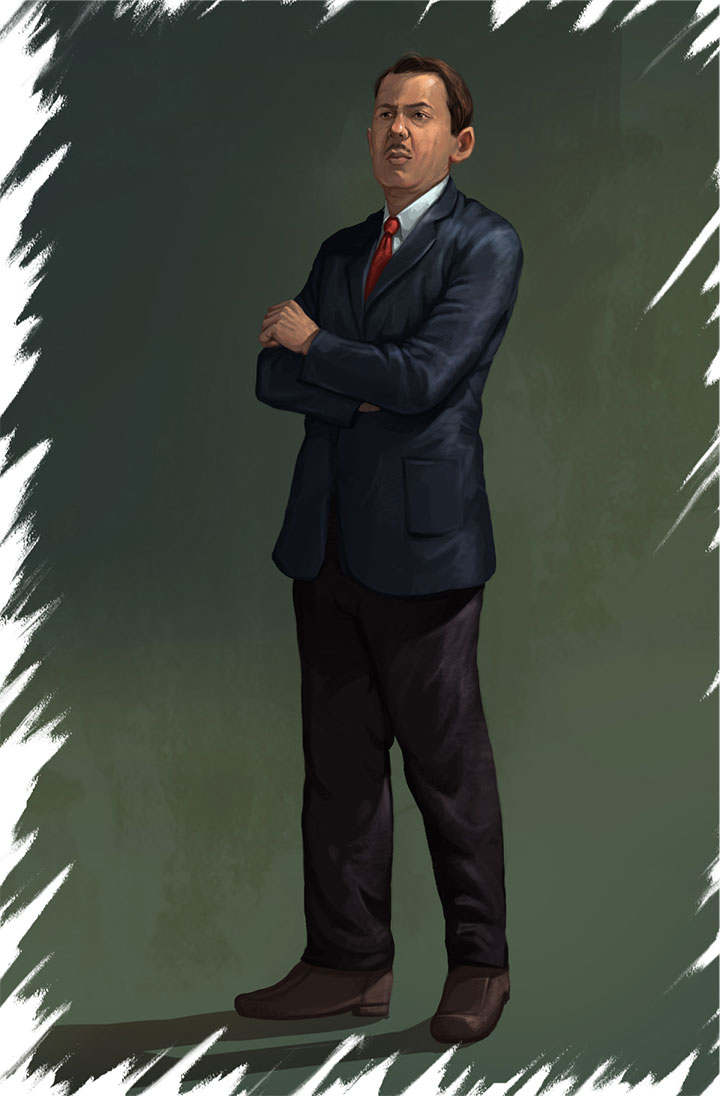
Charles de Gaulle, considered the father of the Fifth Republic, continues to garner popularity decades after his demise. There is a simplistic yet towering influence that Charles de Gaulle exerted. A man who lived life on his terms, a man who had the guts to tackle all the turbulences life offered with courage and dignity. A man who had the audacity to accept his failures yet shell out an exuberance that generated utmost reverence. A man, who successfully managed to combine compassion and love for family, with a high-handed tough outlook in combating challenges, thrown to him by the world. It is hard to miss the name Charles de Gaulle in France; Paris receives you at the Charles de Gaulle Airport.
The Gaullist attitude imparted by Charles de Gaulle is still a virtue in France. The personality and attitude of Charles de Gaulle continues to bestow a towering aura for the French nation. His obstinacy was quite often misinterpreted for arrogance. However, his persistence came from his strong values that he believed in and would never budge for an easy way out. A commendable attitude that probably has no takers in the present times.
A salute to this great soul will be an understatement. To call him an inspirational human would be a generalized gesture. A series of books have been written on the great soul, documentaries have been filmed to capture the enigma of the man called Charles de Gaulle. Monuments of Charles de Gaulle can be found almost everywhere in the French nation as a mark of respect for the amazing leader. De Gaulle himself wrote his autobiography and war-time books to give a complete insight about his persona and his vision. Every reader who reads about Charles de Gaulle is bound to find him enthralling, captivating and enriching.
Next Biography








